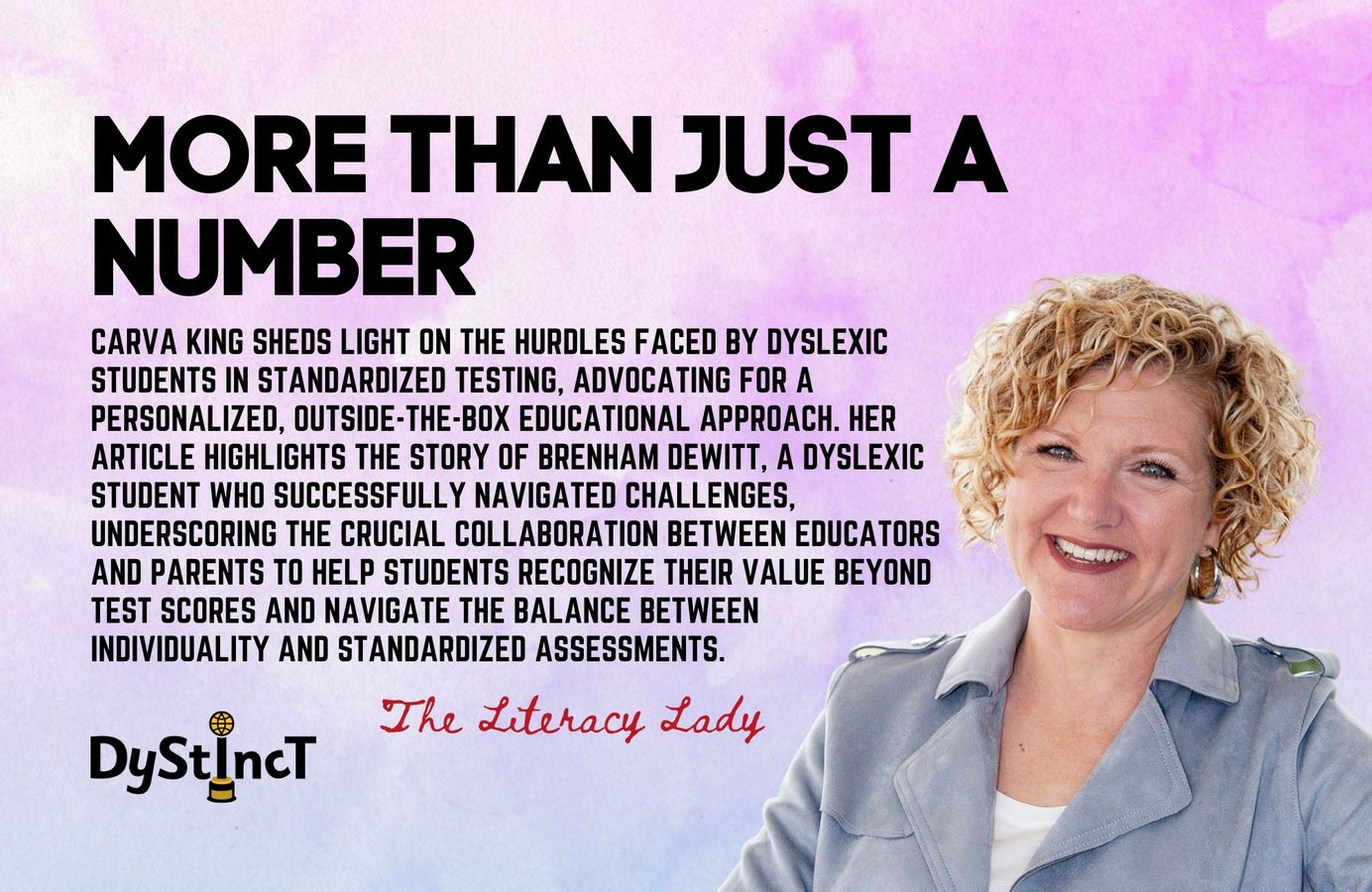
Issue 18: More than just a number | Carva King
Carva King sheds light on the hurdles faced by dyslexic students in standardized testing, advocating for a personalized, outside-the-box educational approach. Her article highlights the story of Brenham Dewitt, a dyslexic student who successfully navigated challenges.
No matter what, Mom, no matter how hard I work, I'm always going to be that kid who's just a 'dumb jock'! These numbers make me nothing more than a stereotyped jock!!
These are the words that Tosha Dewitt heard from her oldest son, Brenham when he received the scores from his first ACT© following his freshman year in high school. Tosha and her husband Brad are the parents of four children with dyslexia: Brenham (20), Landon (19), Teeghan (16), and Chadham (15). Brenham was not diagnosed with dyslexia until the beginning of 9th grade when, following a dyslexia diagnosis for both Landon and Chadham, Tosha had Brenham and Teegan tested just to "rule it out" since they have a family history of dyslexia. Brenham didn't even want his mom to submit the dyslexia report to his school. Instead, he told her, "I'll just work harder."

According to Tosha, his strong work ethic was one of the ways that he had learned to compensate for his previously undiagnosed dyslexia during most of his formal education. As she and Brad began learning to navigate through this new territory as parents, Tosha knew that she would not only have to advocate for the support and accommodations that her children needed but that she would also have to tend to their social-emotional needs in the process.
An important role of parents and educators is to help teens understand that their self-worth is not based upon a test score. Each young person is, indeed, more than just a number. However, the stark reality is that the vast majority of U.S. colleges and universities rely upon college entrance exam scores for admissions, scholarships, and course placement. How, then, do we reconcile our recognition of these children as wonderfully complex, unique individuals with the necessity of being successful on standardized tests that may determine the course of their lives after high school?
The Beginning
The Beginning
I first began working with Brenham to prepare for the ACT© during the Covid-19 pandemic. I was holding only virtual ACT© workshops at the time, but his mom asked me to work with both Brenham and his younger brother, Landon, in person. She is a special education paraprofessional at my school, where I have taught for the last five years in a grant-funded position designed to assist students who are entering high school with significant reading deficits. Together, we decided that virtual learning was not the best option for her boys. For several hours one afternoon, we sat around my kitchen table and began a deep dive into the format, content, pacing, and strategies associated with each of the four subtests on the ACT©. At the time, Brenham's ACT© reading score was a 15 - a score far below the national average and far below his scores on the other three subtests. It quickly became evident to me that this low reading score had significantly impacted his confidence. I knew that my job was not only to help increase his test score but also to help increase his sense of self-worth.
The Shift
The Shift
From the first moment that we meet, students in my ACT© prep program tell me that timing/pacing is the biggest challenge on the ACT©. Even for students with extended time accommodations, there is a built-in fear about how fast they have to move through the test. My immediate response to those initial concerns is, "Mindset is half the battle on the ACT©!" How do we change a student's mindset? One specific thing that I emphasize to all of my students is that accuracy and correctness "trump" speed on a test like the ACT©.
Student: "I never finish all of the math questions!"
Me: "So what? Do you correctly answer the questions that you do have time to complete?"
Student: "I can't read fast enough to complete all four reading passages!"
Me: "So what? Do you understand the first three passages well enough to answer those questions correctly?"
Student: "I have so much trouble with the narrative passage [which is the first one] that I spend too much time on it and never get to the natural science passage [which is the last one]."
Me: "So what? If the narrative passage is always the most difficult one for you, why do it first? Let's make it the last one you do. That way, if you run out of time, you are running out of time on the passage that you were going to miss questions on anyway!"
This post is for paying subscribers only
SubscribeAlready have an account? Log in


